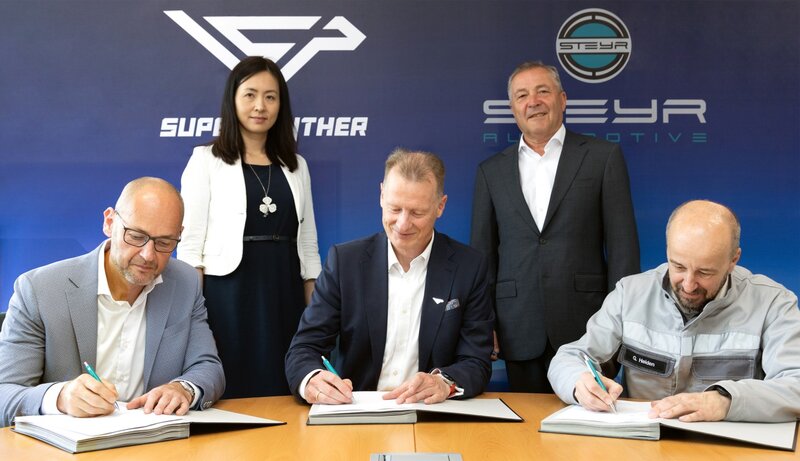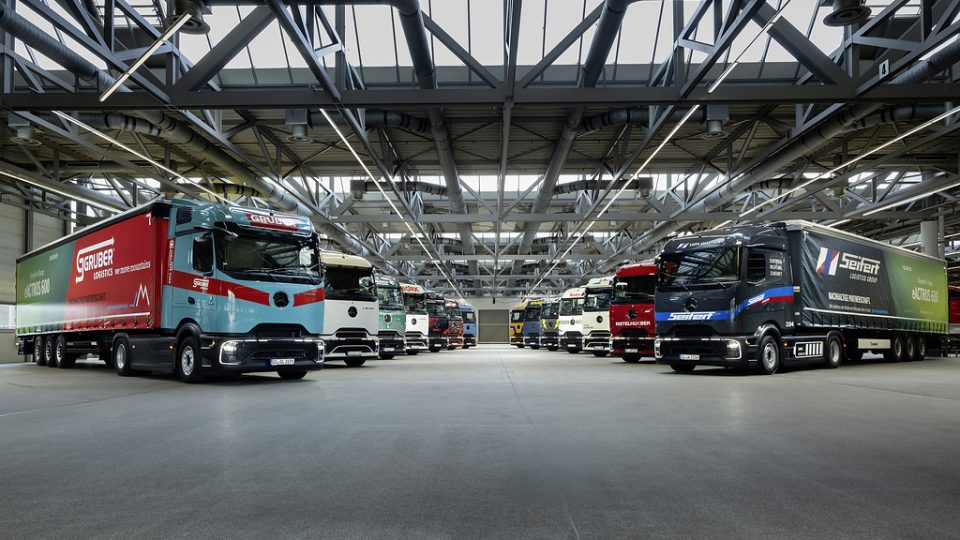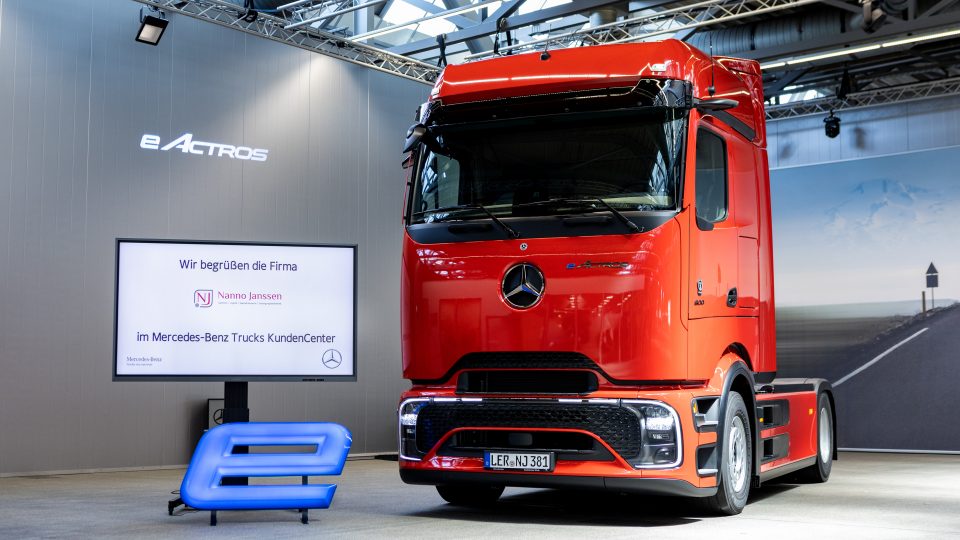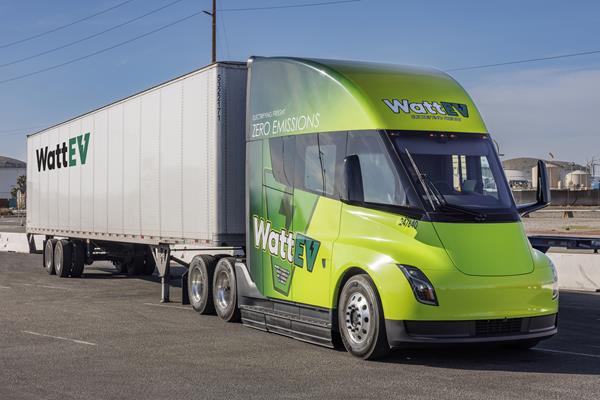MAN inaugurates the e-mobility Center for series production of electric trucks
The intention is to have both conventionally-powered and battery-powered trucks manufactured on the same series production line in Munich. All relevant skilled workers in the truck production department in Munich will be qualified in the serial production of electric trucks by end of 2023.
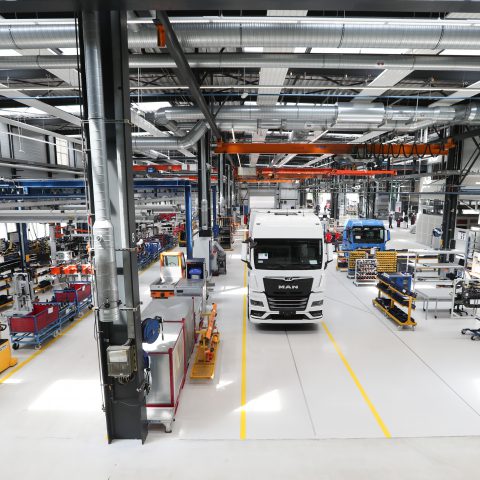
The opening of the MAN e-mobility Center in Munich is the starting signal for industrial production of battery-powered trucks. In an area covering around 4,000 square metres, production employees are testing out the series production of battery-powered trucks under real-life conditions and are receiving training on the industry’s next-generation technologies.
«The EU requires a CO2 reduction of 30 percent for trucks over 16 tons by 2030 compared to current levels», said MAN CEO Andreas Tostmann, hosting the opening ceremony. «We have resolved not only to react to this. We see this as an opportunity to assume social responsibility and to act in a sustainable manner in the long term. With the e-mobility Center, MAN is taking another big step towards jobs of the future and CO2-free mobility. The switch from the combustion engine to alternative drives is an extremely important part of the company’s consistent reorientation».
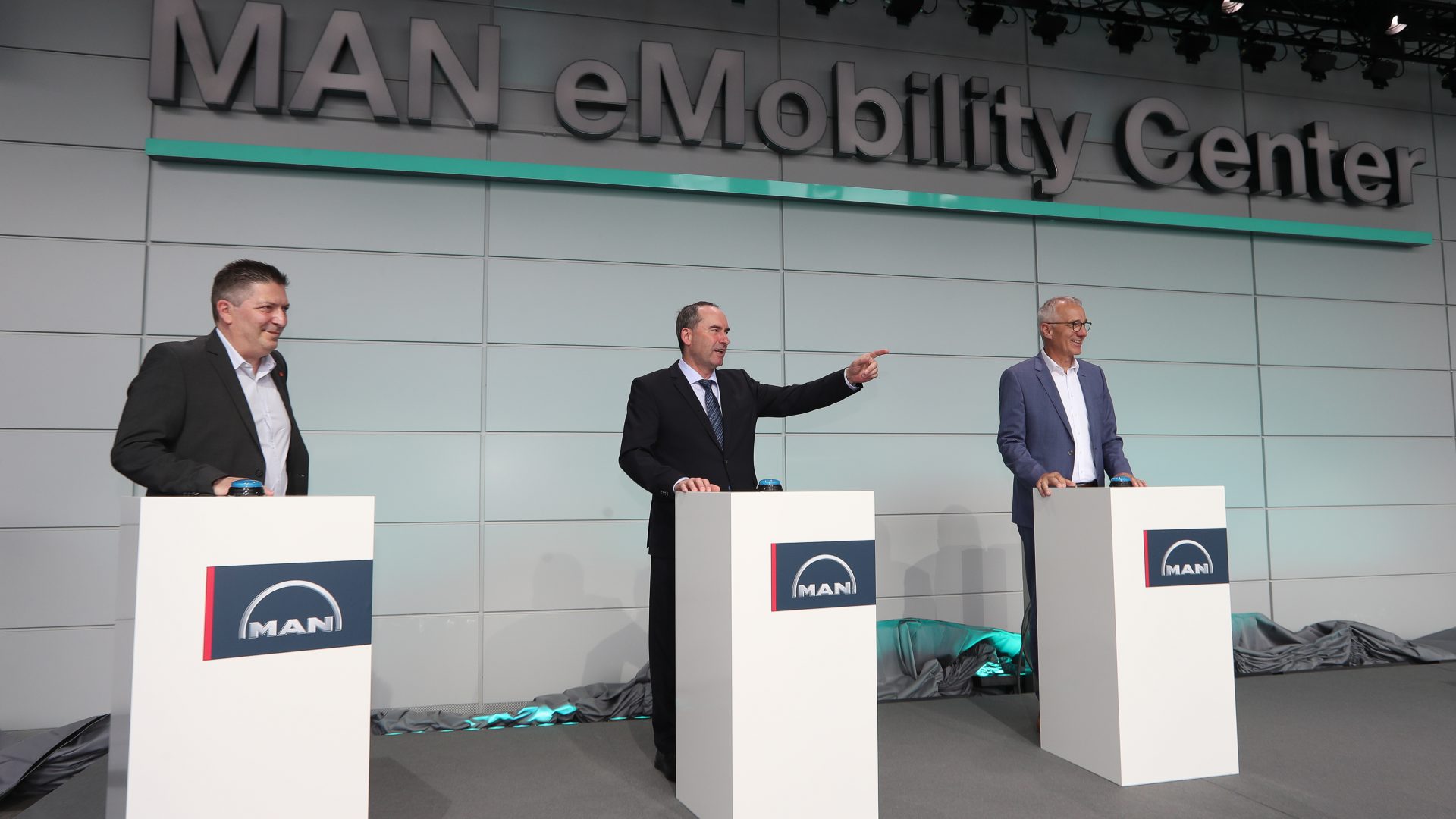
What’s the new MAN e-mobility Center for
At the now opened MAN e-mobility Center, the commercial vehicle manufacturer is laying the foundations for the production of e-trucks on a large, industrial scale. New parts and new components such as the electric battery and engine, high-voltage components and the orange high-voltage cables set the e-truck apart from its conventionally-powered counterpart.
The entire production process, including the start-up process for the vehicle, is carried out at the MAN e-mobility Center in Munich. What’s more, the building features learning islands for employee training. Both on-the-job and off-the- job, employees learn the process steps and the dexterity required for assembling electric trucks on the series production line. The intention is to have both conventionally-powered and battery- powered trucks manufactured on the same series production line in Munich.
«The training programme covers the production processes for e-trucks and how to handle high-voltage technologies safely. The experience gained during series production tests is put straight into the development and manufacturing of production-ready battery-powered trucks», pointed out Michael Kobriger, Executive Board Member for Production & Logistics at MAN Truck & Bus.
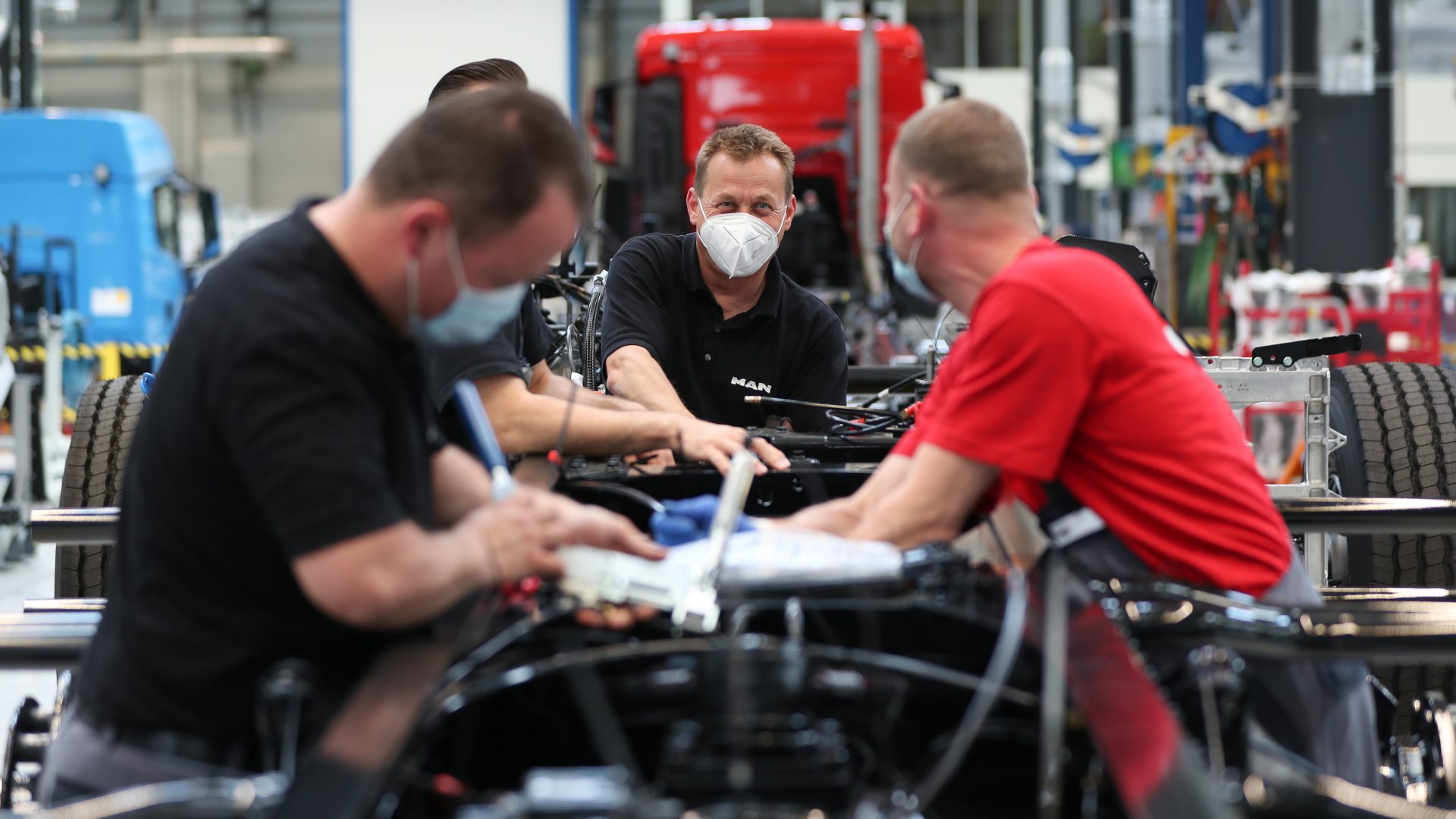
MAN expects the demand for e-trucks will grow in the future
E-mobility is becoming increasingly popular in the transportation sector and in passenger transport. While public transport companies in particular are already electrifying their bus fleets on a large scale, battery-powered trucks for distribution and long-haul transport have not become as prominent on the market over the same period of time, which is partly down to a lack of funding initiatives and essential commercial incentives.
However, MAN expects the demand from transportation companies for electric trucks with zero local emissions to grow in the near future – partly due to climate policy requirements and CO2 pricing, but also due to the fact that it is becoming increasingly cost-effective to run electric vehicles.
By testing serial production of the e-truck at the MAN e-mobility Center, the German manufacturer is preparing for the increase in demand for climate- neutral transport solutions from its customers. The plan is to have all relevant skilled workers in the truck production department in Munich qualified in the serial production of electric trucks by end of 2023.










